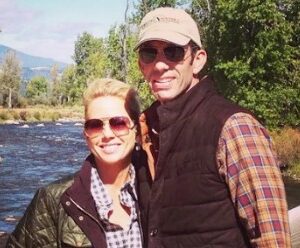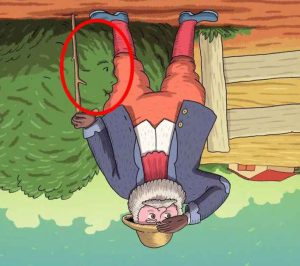It started as an ordinary Saturday afternoon in Richmond, Virginia — the kind of slow, forgettable day that passes without meaning. My wife, Danielle, was picking peaches at the supermarket, humming softly under the soft glow of fluorescent lights. I was leaning on the cart, half lost in thought, admiring the woman I’d loved for thirty years. But then, the air shifted — that heavy, silent tension that only people who’ve seen real conflict recognize. A group of young men nearby had turned their attention toward us, their laughter low, their comments cruel. What began as a grocery trip was about to become something else entirely — a moment that would test not just patience, but principle.
They mocked Danielle for her skin color, using words that cut sharper than any weapon. She didn’t respond; she never does. She’s learned, through years of quiet strength, that dignity is louder than hate. But when one of them followed us outside, hurling insults and finally tossing his drink at her, I saw the pain in her eyes — not just from the humiliation, but from the exhaustion of enduring it again and again. My training kicked in, the kind that teaches you how to stay calm when the world erupts. I didn’t yell or threaten. I simply turned around and met their eyes, steady and unflinching. They thought I was just some middle-aged man. They didn’t see the Marine who had spent two decades mastering discipline, control, and silence.
What happened next wasn’t chaos — it was control. I didn’t fight them; I stopped them. When one stepped too close, I disarmed him using only his own movement, leaving him stunned on the pavement. Another tripped in his rush, learning that force without focus always backfires. By the time it was over, no one was seriously hurt — but something deeper had shifted. The bravado, the arrogance, the laughter — all gone. In its place was silence, the kind that comes when reality finally catches up with arrogance.
Store security arrived within moments, and before I could speak, one of the young men — the quiet one who hadn’t joined in — stepped forward. His voice shook as he told the truth: how his friends had mocked a woman who had done nothing wrong, and how I had simply defended her. His honesty surprised everyone, even himself. That moment mattered more than anything that came before it. It reminded me that even in the worst displays of ignorance, there’s room for redemption — if someone chooses courage over comfort.
Two days later, that same young man showed up at our doorstep. He came not to excuse, but to apologize. In his trembling hands, he held a letter — an essay he’d written about what he learned that day: that real strength isn’t loud, and real courage isn’t cruel. Danielle read it beside me, tears in her eyes, and whispered, “Your calm taught him more than your fists ever could.” She was right. Life will always offer moments when silence feels impossible, when anger burns hot. But the greatest victories are the quiet ones — the ones where you choose restraint over rage, and in doing so, teach someone else what true strength looks like.





